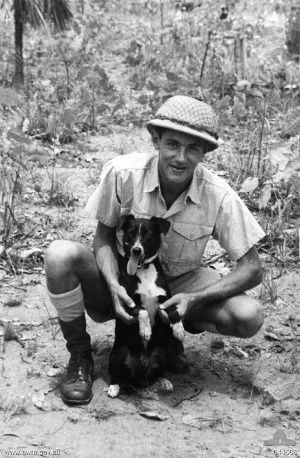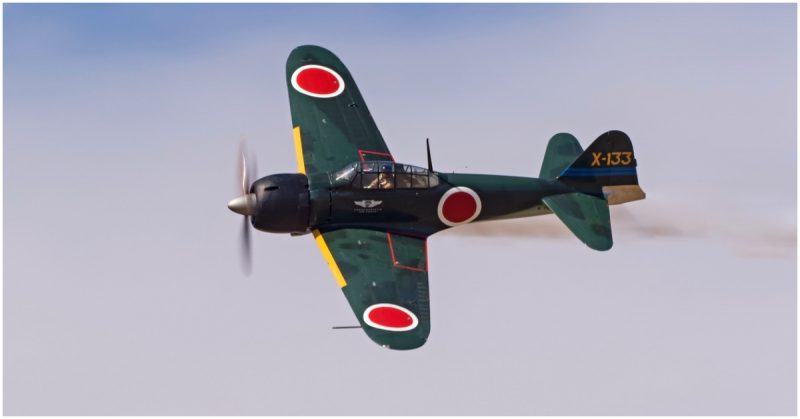Dogs have always been part of the history of warfare, for man’s best friend is a friend indeed if he sticks with him in times of peril. Many canine companions earned enormous respect from their human counterparts in various conflicts ― some were even given medals. Others went mostly undocumented in honorable lists although that does not mean they were forgotten.
Such is the story of Gunner, an Australian Kelpie dog that helped save many lives with his extraordinary sense of hearing. Gunner was found hiding and wounded in an all but destroyed mess hall after Darwin Air Force Base was attacked by the Japanese in February 1942.
The Battle of Darwin was the single largest attack on Australian soil during WWII. A group of 242 Japanese aircraft bombed the small town in which a strategically important Allied base and harbor were located. The Japanese Royal Air Force delivered a striking blow to Australian military personnel in two separate raids. They destroyed 30 aircraft, mostly on the ground, and sank 11 ships. The town of Darwin also suffered significant damage as well with a number of civilian casualties.

Within the rage and fury of the battle, the six-month-old shepherd dog was frantically trying to stay alive, while the noise of Japanese bombers and ground attack planes nearly drove him mad.
When he was found, after the attack, he had a broken leg and a look on his face which described all the horrors of witnessing a bombing. The dog was hurt, desperate and terrified. He was taken to a field hospital where the doctor protested, stating he could not give him any assistance without having a name. Immediately, he was given a name and a serial number ― Gunner, 0000. That was how Gunner officially joined the Royal Australian Air Force.
Leading Aircraftman Percy Westcott, who was among the airmen who found and took care of the dog, became his owner and handler. During the first months, Gunner was deeply shaken by the trauma of the bombing, which made him unfriendly and sometimes aggressive, but he soon began to respond to the care he was given.
Gunner lived up to his name. It only took a few weeks for him to demonstrate his skills. One day, while the airport at Darwin was being reconstructed, Gunner became agitated, jumping about, barking and whining. Soon after, the sound of aircraft engines was heard, while a Japanese attack formation once again flooded the sky above Darwin.
The Japanese once more surprised the Australians, but this time with fewer casualties and damage. The airmen of Darwin connected the dots and realized a pattern between Gunner’s shift of behavior and the bombing raid. The next time the Japanese decided to attack Darwin, their luck had run out. More than 20 minutes before their arrival, Gunner had already sounded the alarm. For the first time, the Australians were ready to repel the attack.
It became apparent that Gunner’s hearing was so good he could recognize approaching enemy aircraft. He gained the trust of all the men on the base, for whenever he headed for cover, whining and squealing, they knew a Japanese attack was imminent, even though it was not yet visible on the radar.
He correctly distinguished the different sound of Allied aircraft and that of the Japanese, without ever making a single mistake. His trait was taken very seriously in a time of war. Wing Commander McFarlane even issued an order by which a portable air raid siren was to be activated whenever Gunner showed his well-known signs of alert.
His role was regarded as pivotal in defending Darwin’s airport and harbor. Gunner was well-accepted and loved among the men ― he slept under his caretaker’s bed, showered with the soldiers and watched movies with them during rest and recuperation. He even accompanied the pilots during their practice take-offs.
In 1943, Westcott, who was responsible for Gunner’s wellbeing, was transferred to Melbourne. The dog-alarm was placed under the supervision and care of the company’s butcher.
Whether he survived the war remains unclear, for apart from the legend which grew around him, Gunner’s existence was rarely mentioned in the official military documents of the time.
It is hoped that he lived long enough to see the end of the largest military conflict in human history and that he was taken care of in time of peace as he was in the war.
